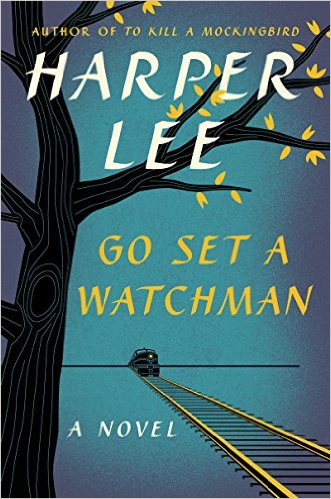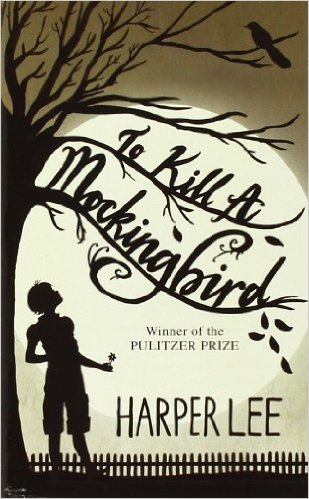 Go Set a Watchman is not a sequel to Lee Harper’s To Kill a Mockingbird. I say that as a writer. As both a writer and a reader, I believe that we do a disservice to both books if we think of the later published book as a sequel to Mockingbird.
Go Set a Watchman is not a sequel to Lee Harper’s To Kill a Mockingbird. I say that as a writer. As both a writer and a reader, I believe that we do a disservice to both books if we think of the later published book as a sequel to Mockingbird.
I’ve been surprised by the reviews that try to conflate the two books. As I understand it, Harper Lee wrote Go Set a Watchman first, then gave it to an editor, who told her to change the book. Specifically, she was told to develop the portions of the book that related to Scout’s childhood, which her editor believed were the stronger parts of the book. She did so, and the book that resulted was To Kill a Mockingbird.
I’ve read that Go Set a Watchman was published with very few changes from the manuscript that Ms. Lee submitted so long ago. Therefore, I think we have to assume that the differences in the characters between the two books were deliberately made by Ms. Lee, not because she intended the characters to continue and evolve from Mockingbird into Watchman, but because she wanted to address the editor’s concerns with the original manuscript.
 After reading Watchman, I can see why the editor wanted the changes. Watchman is at its best when it recounts tales of Scout (Jean Louise), Jem, and others as children and teenagers. The book comes alive in those scenes, as the later-written Mockingbird does also.
After reading Watchman, I can see why the editor wanted the changes. Watchman is at its best when it recounts tales of Scout (Jean Louise), Jem, and others as children and teenagers. The book comes alive in those scenes, as the later-written Mockingbird does also.
The scenes in Watchman of Scout’s lackluster romance with Henry are world-weary and bland, and Scout comes across as jaded and callous. The scenes between Scout and her father Atticus are either emotionally over-wrought or didactic, with Scout chastising her father for his racist allegiances and attitudes. In these scenes, Watchman becomes less a story and more a soapbox—an excuse for Ms. Lee to expound on the two sides of the Southern debate over desegregation in the 1950s. She leaves no doubt about where her sympathies lie, yet shows compassion for how segregationists became the way they did.
Most of the press that Watchman has received deals with the transformation of Atticus from a principled and justice-seeking defense attorney in Mockingbird to a prejudiced Southern bigot in Watchman. In fact, Ms. Lee wrote the books the other way around—the bigot of Watchman became the paragon of Mockingbird.
If the Atticus character in the two books is different—and he is—I believe the transformation came about as the writer developed the Mockingbird manuscript from her Watchman draft. He is simply not the same character in the two books. Ms. Lee used him for different purposes.
This is not a nuance. It is at the heart of how writers work.
As a writer, I know how characters evolve with every draft of a novel. Maybe the writer decides they should play a different role or take on a different relationship with the protagonist. The Atticus that Harper Lee first described in Watchman was designed to be a foil for Scout to expound on her lack of racial prejudice. Scout’s disillusionment with her father was because he had hidden his own prejudice from her. In Watchman, Scout and Atticus took opposing points in the segregation argument. The scenes between them are not subtle as they take the pro and con sides of the debate.
In Mockingbird, Atticus was Scout’s model and parent, helping a little girl to make sense of her world as she was just coming to understand its complexity. There is not any clue that Atticus was biased. In Mockingbird, Atticus was not just seeking justice. He was just to the very fiber of his being. I have to believe Ms. Lee deliberately made these changes for purposes of her story.
Ms. Lee therefore had different goals in writing about Atticus in the two books and changed him from the Watchman Atticus to the Mockingbird Atticus. Scout in Watchman is distraught because her beloved father is not who she thought he was, but the Atticus of Watchman is not and never was the Atticus of Mockingbird. The change was more significant than merely a change in Scout’s perspective from child to adult. The change was in Ms. Lee’s depiction of the character.
So read Mockingbird and read Watchman, but don’t think of them as the same book, any more than you would any two books written by the same author using different characters. Judge each of Ms. Lee’s books on its merits.
Mockingbird is—and deserves to be—an American classic. Watchman does not. Watchman is an adequate book that fulfills a didactic role. It occasionally sings—when it takes the childhood perspective of Mockingbird—but it is clumsy in its teachings about adult society.
Frankly, I think Ms. Lee and her advisors harmed her reputation as a writer and made her work less accessible to readers when they decided to publish Watchman, at least without significant editing. Had I been editing Watchman, I might have suggested changing the characters’ names so that the two books could clearly stand alone.
Watchman has merit (though not as much as Mockingbird), but readers will naturally try to equate the characters, which weakens the power of Mockingbird. Some reviews say Watchman gives depth to Mockingbird, but I disagree. In my opinion, Watchman is a three star book. A perfectly adequate first novel, but it comes nowhere near the excellence of Mockingbird.
The most fascinating aspect of Watchman for me was uncovering the evolution of Harper Lee as a writer. Her development from Watchman to Mockingbird inspires me to think that someday I will be better than I am today. I just hope I have one great book in me, and that I can improve to the point that I can get it on paper.
Other readers of Go Set a Watchman, what do you think?




They say we get better with each book. That’s why it’s not wise to spend years on one book. Finish one and start the next.
I haven’t read Go Set a Watchman yet, but I appreciate your honest review, Theresa.
Let’s hope we get better with each book!
Thanks for the review, Theresa. I haven’t read “Watchman” yet, either. Sounds like it may have need some editing. I hope I have one good book in me and that I’ll get it down on the paper, too! 🙂
[…] reviewed Go Set a Watchman recently, so I won’t write more now, other than to say that the book haunts me, both for itself […]